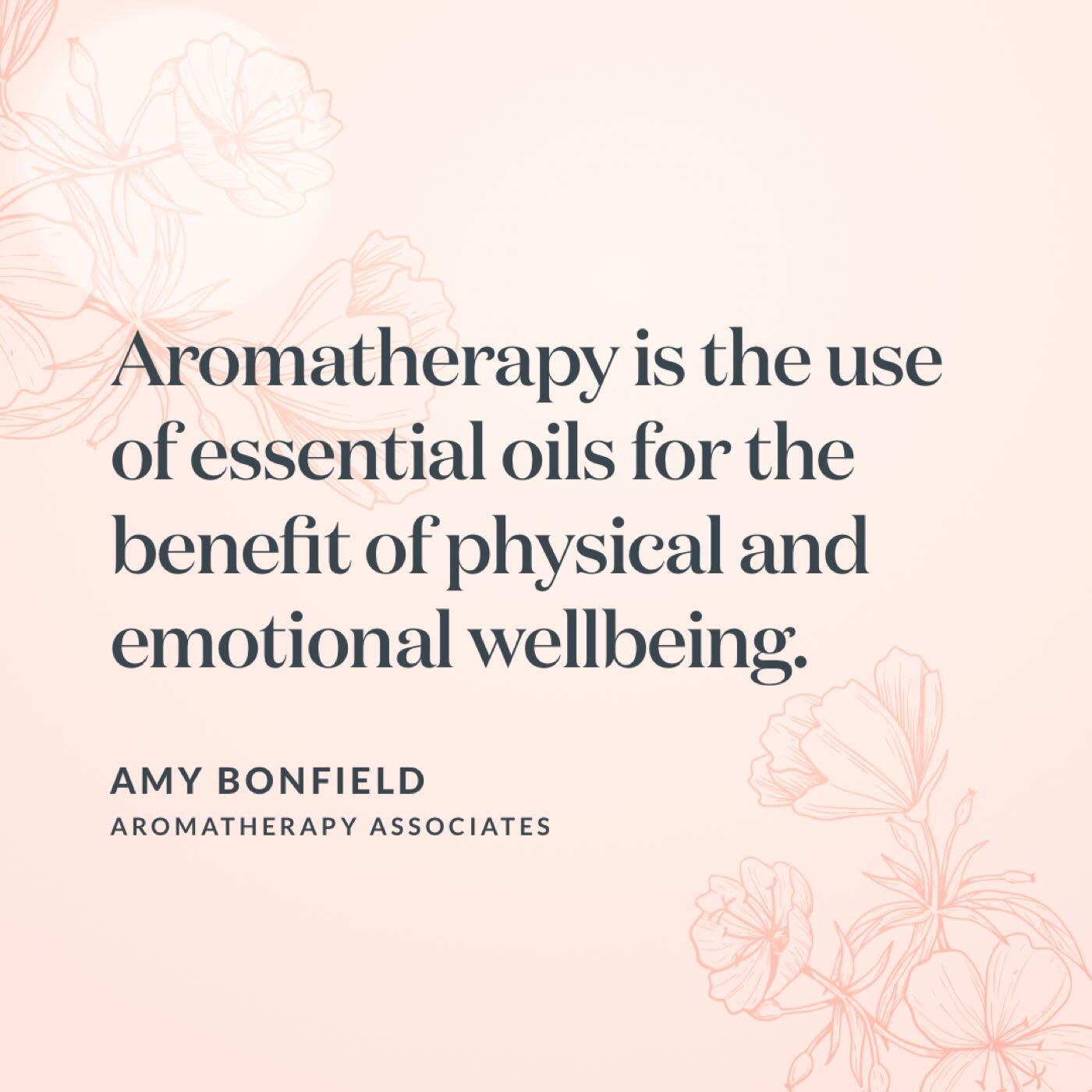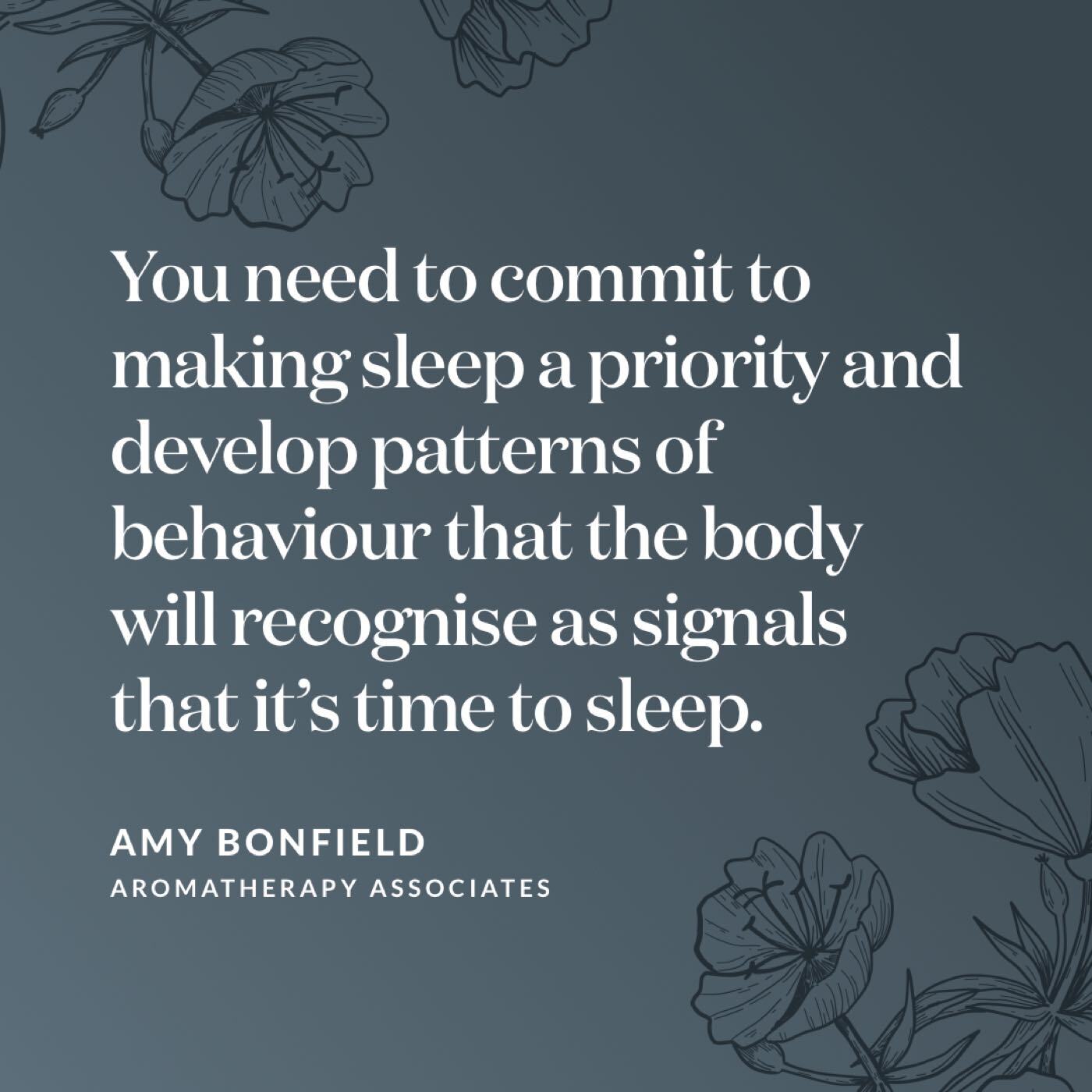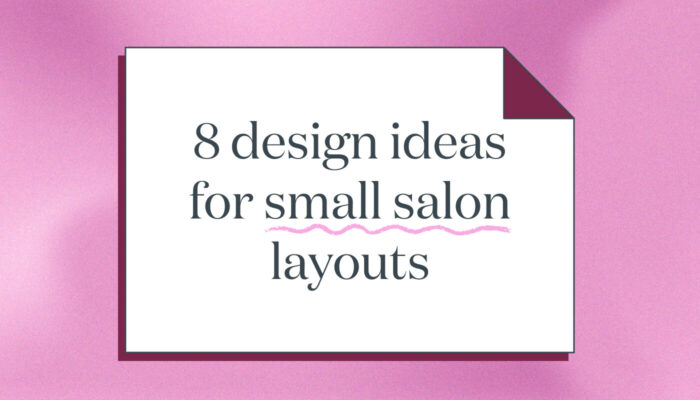Wellbeing essentials
For nearly forty years, Aromatherapy Associates has been supporting the wellbeing of people around the globe by bestowing the virtues of essential oils on physical and emotional wellbeing. Committed to helping both people and the planet, Aromatherapy Associates was last year awarded B Corp status; a level of certification given only to organisations that meet the highest standards of environmental and social impact. Here, Amy Bonfield, Aromatherapy Associates Education and Business Manager, talks to Timely about the benefits of aromatherapy, breathing exercises, and sleep.
Have attitudes towards self-care and wellbeing changed since the start of the pandemic?
Absolutely. At the start of the pandemic, the impetus was on maintenance treatments. Clients wanted to get their hair cut and coloured, they wanted a manicure, or waxing, or to have their lashes done, and their eyebrows shaped. Now though, people have really started to focus more on self-care and, consequently, there has been a very definite shift in the way that clients perceive our industry. They have come to realise that the services and treatments hair and beauty professionals provide can be hugely beneficial to their wellbeing.
Increasing numbers of clients are booking hands-on treatments, such as massage. And their reasons for booking have changed. Those people who, prior to the pandemic, would book a massage only as a treat, have now realised its value as a regular component of self-care.
What are aromatherapy essential oils and how do they enhance wellbeing?
Aromatherapy is the use of essential oils for the benefit of physical and emotional wellbeing. Essential oils come from natural plant sources, including roots, seeds, trees, flowers, and fruits. They are the elements of the plant that protect it from viruses, bacteria, and various other aggressors. When we extract the essential oils from the plants and use them in aromatherapy products, they can have the same benefits for us. There are hundreds of different essential oils, and blends of essential oil, because they all have different emotional and physical benefits.

And the use of essential oils certainly isn’t limited to the spa or salon. In your day-to-day life you can diffuse essential oils at home, add a few drops to your bath water, burn aromatherapy candles, use essential oil misting sprays, or access them in a whole range of bath, beauty, and body products.
Essential oils are well known for their abilities to alleviate stress. Do you have any other tips for inducing calm during moments of overwhelm?
There’s a quick and easy breathing exercise, called box breathing, that can really help with stress and anxiety. Simply breathe in for four counts, hold the breath for four counts, breathe out for four counts, hold again for four counts, and then repeat for as many times as you need to. You should start to feel better quite quickly.
This particular exercise works well because holding between the in and out breaths stops your mind from wandering and brings you back to the present moment. You can use box breathing wherever you are, at any time of day, and it’s a great technique to turn to if you are struggling to sleep.
What else can help people who are having difficulties sleeping?
Insomnia and disturbed sleep is a problem for an awful lot of people at the moment. Lack of sleep can have a significant impact on both our physical and emotional health. Sleep is a vital physical need, but we don’t always treat it as a priority.

Establishing a bedtime routine is a very effective way of regulating sleep patterns. You need to commit to making sleep a priority and begin to develop patterns of behaviour that the body will start to recognise as signals that it’s time to sleep. Different things work for different people, but common habits that help with better sleep include switching your screens off an hour before bedtime, journaling, meditation, not taking your phone into the bedroom, having a warm bath or shower before bed, and, of course, using relaxing aromatherapy oils. The key thing is to find what works for you and be consistent about doing it.


